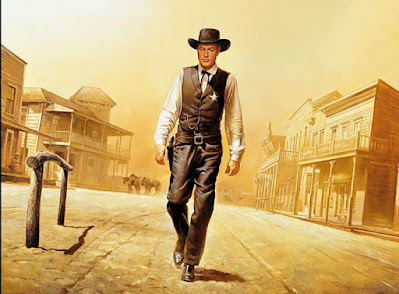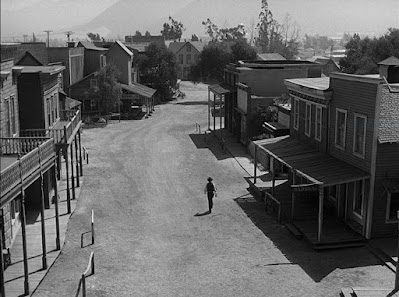Today is Bloomsday – June 16th. It's celebrated, as it was the day James Joyce met the woman of his life in Dublin and he wrote Ulysses and set it on that particualr day in Dublin.
I wrote this in 2010 and I will read it first and edit for the date:
It's
Bloomsday today – June 16th – and on Bloomsday I think I'll put
up here on the blog the 'Bloomsday' episode from my novel Alfredo
Hunter; the Man With the Pen.
Of
course I have changed the title of my novel from The
Storyteller and
on Amazon.com you can see excerpts from it under the former title. In
fact on Google they have the whole novel somewhere in their library
of all books ever written – or whatever it's called.
Bloomsday
is taken from the novel Ulysses which
takes part in the day of June 16th 1904 and the leading character
therein Leopold Bloom – not Leo Bloom from The
Producers by
the way.
James Joyce set Ulysses on
June 16th 1904 because that was the day he met the love of his life
Nora Barnacle; well he did not actually meet her on that day but it
was the day they first walked out; it was the day she did a small
sexual favour for him which might have affected his mind; he thought
if she can do that for me on the first day she would do it for
anybody. It wasn't necessarily true, of course – what do I know? -
but it led to bouts of jealousy and anxiety from the genius Jim which
would upset Nora.
They left Dublin soon after and never returned
to live there again – everything he wrote about Ireland he wrote
from abroad. At one time they lived in London where they married –
some time during the 1930s.
There is a lot of James Joyce in my
novel; number one the leading character writes a play about him,
there are various references to Ulysses and
the prologue is actually a pastiche of his first novel A
Portrait of the Artist as a Young Man.
That novel starts off with 'Once upon a time and a very good time it
was there was a moocaw coming down along the road and this moocow
that was coming down along the road met a nicens little boy called
baby tuckoo . . .' and my novel starts off with 'Once upon a time and
a long time ago it was in the city of Dublin in the land of Ireland
there was a man with a pen' – and then there are other phrases I
use in the prologue; Joyce talks of the world being 'a great ball
surrounded by clouds' and I use that phrase adding 'as the great man
once said' and he also uses the phrase a 'greasy leather ball' which
I also use to denote, as he did in the novel, the way some boys from
the past were forced at school into sport and I remember at school
trying to head that greasy leather ball they call a football.
But
even though James Joyce is a subject of my novel I don't think I am
influenced by him at all. I know every writer, especially the Irish
ones, feels James Joyce looking over their shoulder as they write but
I am more influenced by Charles Dickens, if anybody, or even William
Shakespeare. Now that might sound as if I am comparing myself to
Shakespeare and Dickens but nothing could be further from the
truth.
I can't remember ever learning anything at school; I never
did any work at school I didn't have to and the only subjects I liked
had to have a story to it – like stories from the bible; the
English Literature was non existent unless you want to count Seven
Pillars of Wisdom by T.E. Lawrence (Lawrence of Arabia) being passed
from pupil to pupil to read out loud in schoolboy monotones and
turning into Seven Pillows of Sleep for me!
So I didn't do English
Literature till years later after I'd read lots of books and even
been to drama school – I was a mature student studying D.H.
Lawrence (surprising what one letter makes), William Golding and
First World War Poetry by a teacher who loved the subject.
At
drama school I was reading and trying to perform Shakespeare when I
hardly knew English!! Of course I was in a lot of trouble as I hadn't
heard of any of the plays or even the characters and the only way I
could even understand it was by sorting out his use of parenthesis
and semi colons; without sorting those out I would have been up the
creak without a paddle.
I eventually did Shakespeare
professionally although not as much as I would have liked to; I
earned a lot of money once doing a Shakespeare play for the BBC, even
though it was a small part, and when I first came over here I
'workshopped' Richard III playing Richard which went very well – I
guess some of the training must have gone in.
When I write I bear
in mind Shakespeare's use of the English language – again I am not
comparing myself to the greatest genius that has ever lived or the
two greatest novelists in the English language, but I would recommend
anybody who wants to write to follow them as opposed to Dan Brown.
So
remember it is Bloomsday; there will, more than likely, be something
on near you, if you look for it, and if you are in Dublin go on the
walking tour if you can; go to Mulligan's Pub in Poolbeg Street and
drink a pint of the best Guinness in the world and then come back and
read my blog about my two leading characters celebrating Bloomsday in
Los Angeles which was based on a true incident in 1995.
CHRIS SULLIVAN. LOS ANGELES 2010.





